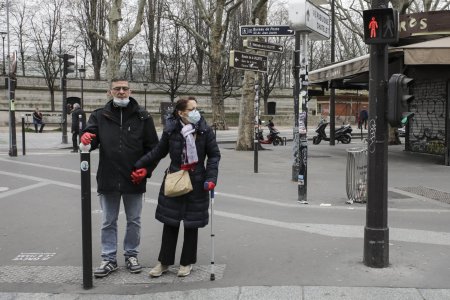 Aurelie Baumel/MSF
Interview
Aurelie Baumel/MSF
Interview
03/17/2020
Jean-Hervé Bradol
Confronted with a "totally unprecedented biological, social and political event", Jean-Hervé Bradol spoke with Mediapart about the difficulties of basing all prevention on behavioural measures: "It takes time for a society to fully acknowledge the existence of the event, which is unfolding as it tries to understand it.”
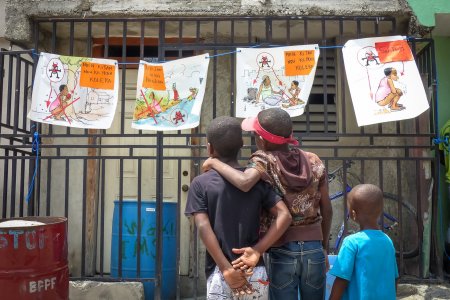 MSF/Lauranne Grégoire
Review
MSF/Lauranne Grégoire
Review
12/23/2019
Rony Brauman
The cholera outbreak in Haiti in October 2010 was among the deadliest in modern history, with 800,000 people infected and 10,000 fatalities. And these are just the official figures. The actual death toll was far higher, as evidenced by numerous retrospective mortality surveys, and can only be expressed as an order of magnitude: to wit, several tens of thousands.
This book recounts eight years of struggle on two fronts that the author shows to be closely linked: the field, with the implementation of measures of prevention and case management; the scientific debate, in the form of a shattering of the dominant environmental theory concerning the origin of the epidemic.
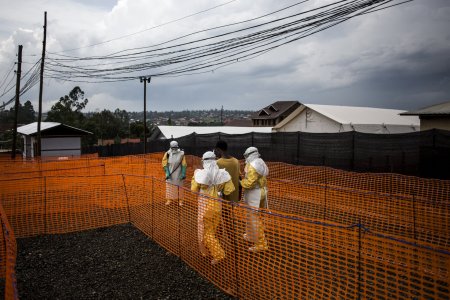 John Wessels
Interview
John Wessels
Interview
09/10/2019
Jean-Hervé Bradol
Elba Rahmouni
On August 1st 2018, the Democratic Republic of Congo’s health authorities declared the country’s tenth outbreak of Ebola virus disease (EVD), this time in North Kivu province. Just over a year later, this outbreak is still ongoing, with several dozen new cases reported each week. In the space of 12 months, 3000 people contracted the disease and 2000 of them have since died. This latest outbreak can be seen as a failure at two levels: first, it is already the second biggest EVE outbreak ever recorded, and second, two out of three patients have died. What are the reasons for this failure? What operational strategies should we develop in response?
Interview with Jean-Hervé Bradol, Director of studies at CRASH, by Elba Rahmouni.
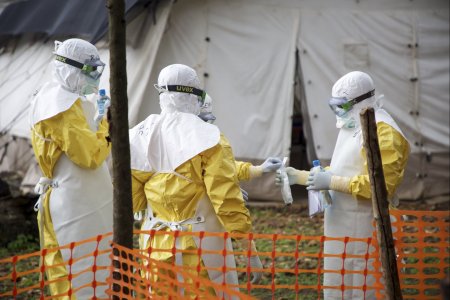 Carl Theunis/MSF
Interview
Carl Theunis/MSF
Interview
10/26/2018
Elba Rahmouni
Rebecca Grais, Research Director at Epicentre, MSF’s epidemiology arm, and Pierre Mendiharat, Deputy Director of Operations for MSF-France, offer their insights on the Ebola outbreak in North Kivu Province in the eastern Democratic Republic of the Congo (DRC). This joint interview in four parts (the outbreak, social context, treatments, and vaccination) aims to show how science and practice interact around each outbreak.
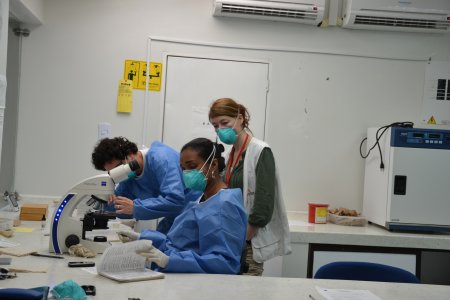 Karine Bodart
Analysis
Karine Bodart
Analysis
04/27/2012
Jean-Hervé Bradol
Francis Varaine
Epidemiological studies estimate that nearly nine million people were suffering from active tuberculosis (TB) in 2010, causing upwards of one and a half million deaths. More than 90% of these deaths took place in low- or middle-income countries, thus reinforcing an old idea that TB and poverty are strongly linked.
 Larry Towell
Analysis
Larry Towell
Analysis
11/21/2006
Rony Brauman
Rony Brauman reviews the myths and mechanisms governing the deployment of international aid following the Southeast Asian tsunami in December 2004.
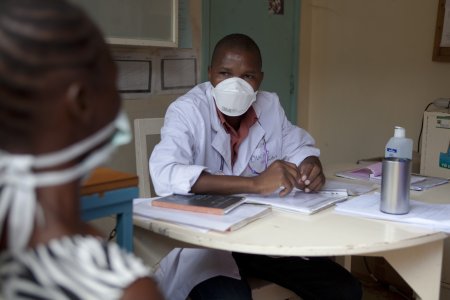 Olga Victorie
Op-ed
Olga Victorie
Op-ed
07/29/2009
Jean-Hervé Bradol
Based on MSF's experience in responding to epidemics, Jean-Hervé Bradol describes the risks of spending precious time and energy on trying to delay the spread of the epidemic rather than on the case management of large numbers of sick people.
 Daro Sulakauri
Opinion
Daro Sulakauri
Opinion
12/01/2009
Rony Brauman
Pharmaceutical companies produce drugs and are increasing involved in the clinical trials of these products. This conflict of interest is incompatible with the expectations of Public Health. Rony Brauman suggests that the industry no longer be responsible for therapeutic trials.
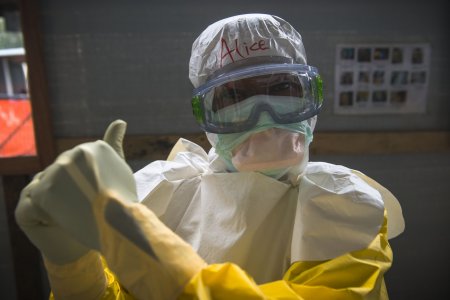 Yann Libessart
Analysis
Yann Libessart
Analysis
02/08/2016
Jean-Hervé Bradol
If MSF has held a preponderant position in the response to the Ebola crisis, it owes it just as much to its intervention capacities as to its capacity for criticism. The following article by Jean-Hervé Bradol embodies perfectly the latter in pointing to the issues that appeared on the occasion of this epidemic.
 Conference
Conference
02/04/2014 - 01:30 PM 07:30 PM
Claire Magone
The polio eradication campaign has indeniably and remarkably succeeded in tumbling down the number of polio cases worldwide. But difficulties currently faced by the Programme -pockets of social resistance in several countries, reinfection of some countries, outbreak of epidemics associated with strains of vaccine-derived polio viruses- indeed challenge one of the main assumptions underlying the objective of the eradication itself : the full compliance of an entire population to a public health program.
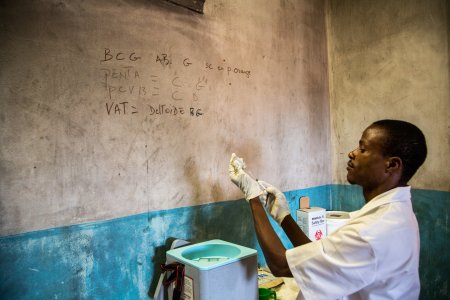 Pierre-Yves Bernard
Analysis
Pierre-Yves Bernard
Analysis
10/22/2013
Claire Magone
In the 1980s, a global commitment was made to eradicate polio in the wake of the eradication of smallpox. As far as the world health community was concerned, this successful experience made it an example model on which to base future campaigns against infectious diseases.
 Aurelie Baumel/MSF
Interview
Aurelie Baumel/MSF
Interview











